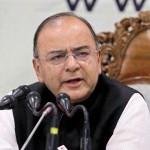Union Budget 2018: Personal tax proposals
Although there have been no changes in the personal tax slab rates in the final pre-election Budget announced by the Finance Minister (FM), here are some of the key amendments personal tax proposed:
Standard deduction will now be available on salary income. It is proposed that instead of the tax-free limit of ₹15,000 for medical expense reimbursement by employer, transport allowance exemption of ₹1,600 per month (₹19,200 annually) and a standard deduction of ₹40,000 would be allowed as a deduction from taxable salary income. The transport allowance exemption is however, continued for differently-abled salaried individuals.
Introduction of health and education cess: presently, “education cess” (at 2%) and “secondary and higher education cess” (at 1%) is applicable on every individual’s tax liability (including surcharge). It is now proposed to discontinue these cesses and introduce a combined “health and education cess” at a higher rate of 4%. Due to this increased levy, the effective peak rates will increase to 10.4%, 20.8%, 31.2%, 34.32%, 35.88% depending on the income levels.
Re-introduction of long-term capital gains tax (LTCG) on gains arising from the transfer of long-term listed equity shares and equity-oriented mutual funds: presently, LTCG from the sale of equity shares and units of equity-oriented mutual funds on which securities transaction tax (STT) has been paid at the time of sale is exempt from tax.
The FM has proposed to withdraw this exemption starting April 1, 2018 and levy a tax of 10% on such LTCG. While there will be no indexation benefit allowed while computing such LTCG, the first ₹ one lakh would not be taxable. The only consolation factor in this new levy is that the appreciation in value of shares up to January 31, 2018 would be grandfathered.
Relief for senior citizens: There are some positive proposals for senior citizens in this budget.
They would be now entitled to a higher tax-free interest income of ₹50,000 against present limit of ₹10,000.
Further, this new limit also includes interest earned on fixed deposits (which is not the case for other taxpayers).
Consequently, the requirement for banks to withhold income-tax at source has been done away with for interest income payable to senior citizens upto the new limit of ₹50,000.
Deduction limit for health insurance premium/ preventive health checkup/ medical expenses for senior citizens is proposed to be raised from ₹30,000 to ₹50,000.
Deduction will now be available upto ₹one lakh (as against present limits of ₹60,000 for senior citizens/₹80,000 for very senior citizens) for medical treatment of specified diseases.
All in all, while most salaried individual taxpayers may feel disappointed with the lack of additional incentives for housing loans and enhancement to deduction under Section 80C, at least the senior citizens should be happier with the above Budget proposals — as they say….“Life begins at sixty”!!!
Kindly send reply or comments on this topic to [email protected]
Source:The Hindu

Finance Minister Of India



